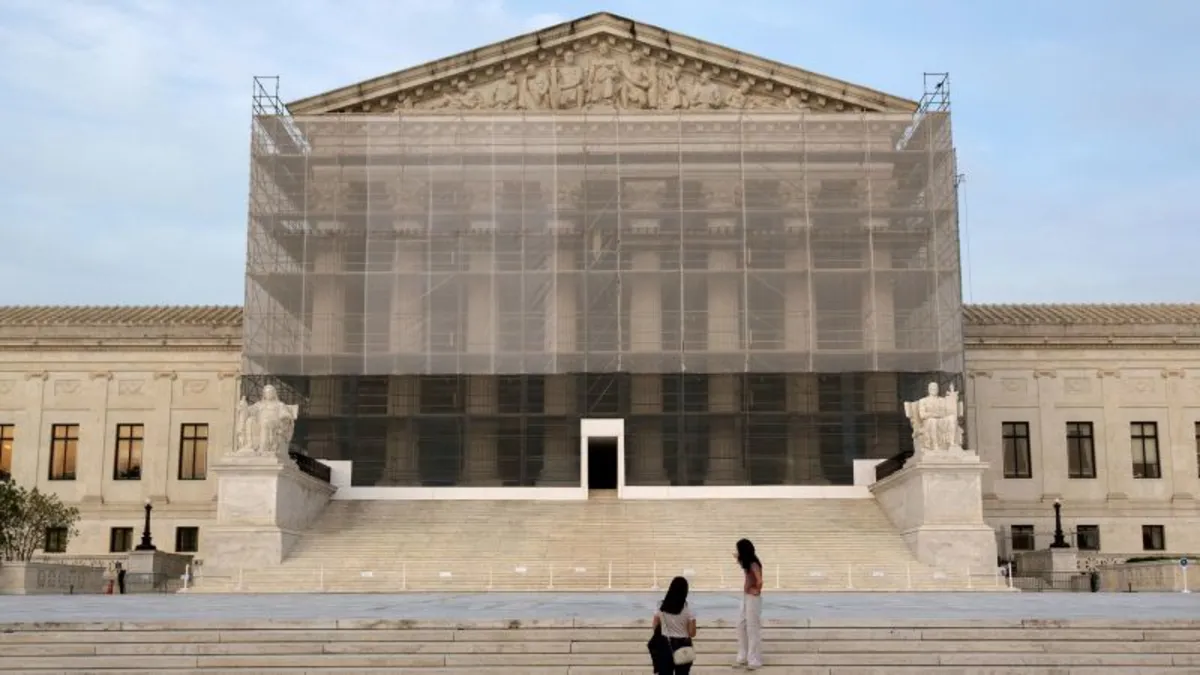
The Supreme Court is set to announce its final decisions of the term this Friday, a day that is anticipated to be monumental in legal history. Among the key rulings expected is a highly publicized decision on whether former President Donald Trump can enforce his controversial executive order that seeks to limit birthright citizenship. This announcement was made by Chief Justice John Roberts from the bench, following the court's long-standing tradition of revealing significant decisions in this manner.
This final day is shaping up to be a blockbuster, as the justices will deliver six pivotal opinions, including those related to Trump's birthright citizenship order. Other notable cases include a challenge from religious parents aiming to exempt their children from reading LGBTQ literature in schools and a First Amendment lawsuit concerning a Texas law that mandates age verification for accessing pornography online. Typically, the high court aims to conclude its work by July; however, it is uncommon for so many closely monitored cases to be released on the same day.
In contrast to this year, last year's final day saw the court issue three opinions, one of which granted President Trump immunity from criminal prosecution. Two years ago, the court also delivered three opinions, including a significant ruling that halted President Joe Biden's student loan relief program. This year, the anticipation is particularly high due to the weight of the decisions pending.
Among the cases awaiting judgment is whether a school district in suburban Washington, DC, infringed upon the religious rights of parents by not allowing them to opt their elementary-school children out of reading LGBTQ books in the classroom. The court will also rule on the future of a government task force that recommends which preventive health care services must be provided at no charge under Obamacare. Additionally, the justices will examine a challenge regarding Louisiana's congressional districts, questioning the extent to which states can consider race when redrawing maps to address violations of the Voting Rights Act.
However, the most consequential ruling is expected to be related to Trump's birthright citizenship order. The Trump administration has petitioned the Supreme Court to limit the reach of nationwide injunctions that lower courts have increasingly issued, which have been known to stall various elements of the president's agenda. During oral arguments, several conservative justices expressed apprehension about the implications of nationwide injunctions, while also showing discomfort with temporarily allowing the president to enforce a policy that appears to challenge the 14th Amendment.
Just last week, the court made headlines by upholding a Tennessee law that bans gender-affirming care for transgender minors. This decision reflects a growing trend, as approximately half of the states in the U.S. have implemented similar bans. As the nation watches closely, the Supreme Court's final decisions this term will undoubtedly have lasting implications on various aspects of American life.